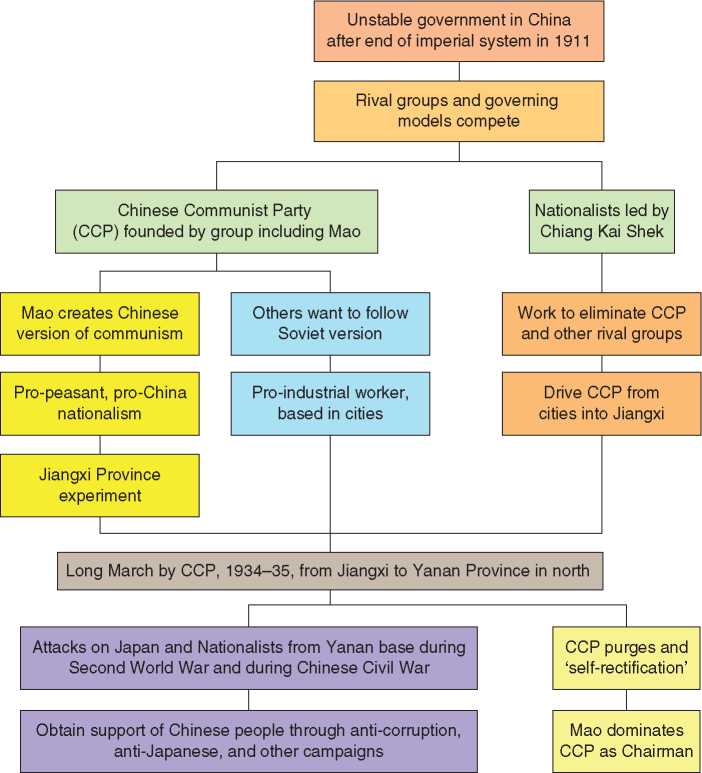The Communists' success was attributable to a number of reasons:
• Mao's mixture of determination and opportunism served the Communists well. When the war began Mao's main aim was simply to avoid defeat by preserving his northern bases but when he realized that the Nationalists could be beaten he adopted an attacking strategy which eventually forced Chiang out of mainland China.
• Historians now suggest that, of all the factors accounting for the CCP's ultimate victory, Mao's military leadership was the most significant. It was under him that the Communist forces who were essentially rural guerrilla fighters in 1945 had by 1949 become an effective modern army.
A key element was Mao's self-confidence and power of command in pressing on with three decisive campaigns in the winter of 1948-49, even when his generals doubted that they could be fought successfully.
The Red Army's ability to live off the land and obtain support, food and information from people in the localities was a huge advantage.
Although Stalin gave some military support to the Communists, he did not want a strong united China as a neighbour, and attempted to pressure Mao into making a compromise peace with Chiang which would have left China partitioned. Mao, intent on complete victory, successfully resisted such interference.

SUMMARY DIAGRAM
Mao’s rise to power, 1911-49




 World History
World History









